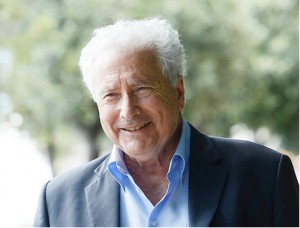VENICE AND THE GHETTO “A Unique Occasion to Understand Both History and the Present”
The fifth centenary of the Ghetto of Venice, the oldest in the world, is a fundamental turning point for awareness. We are talking about an occasion, a really unique one, that enables us to better understand a secular history that expresses itself in the bitter language of denial, oppression and despise. Only later on – with the falling of the walls and the opening of the gates – it became the sweet language of ransom and freedom. The Ghetto is the paradigm of the exclusion: the suspension of the rights and the extreme refusal of the Other. As History taught us, it is a behavior that always had a bitter price, a price paid not only by the persecuted communities, but also by the societies that by establishing the ghettos and firmly closing its doors ended up taking a path towards an abyss whose bottom consists of the most brutal abjections and savageries. The inquisitions and pogroms of the past centuries are there to prove it.
Like, in more recent times, are there to prove it the persecution of the Jews during Nazi-fascistic times. The Nazi Ghettos worked so well, in their authors’ opinions, because they wanted to be completely inspired by that infamy that was launched and enthusiastically refined many generations earlier by Popes, Heads of Government and local administrators. If we question the Ghetto, Venice’s one in particular, we also have to deepen the idea of resiliency, the human capacity to adapt to the most complicated situations, and to survive traumas and obstacles. The Jews of Venice represent an extraordinary example of this capacity and throughout the centuries of their exclusion, their great intellectual, cultural and religious knowledge has been a proof of their love for the life and for this city, which is stronger than any possible hardship. For these reasons it would be misleading to consider this anniversary a joyful and rhetoric celebration of an achieved goal.
The organizers, the friends of the Jewish Community of Venice, the qualified workgroup that has elaborated a complex, high-level program, have a different aim: to mark this Anniversary as a new starting point that will encourage the reflection about those historic experiences as an actual lesson for a wide public, thanks to their variety of languages and cultural expressions. It is an important occasion to deepen our knowledge that, I am sure, will not be wasted.
*Renzo Gattegna is the president of the Union of Italian Jewish Communities. This article has been translated by Giulia Paris, student at the Scuola superiore interpreti e traduttori di Trieste, who is doing her apprenticeship in the newsroom of Pagine Ebraiche.

